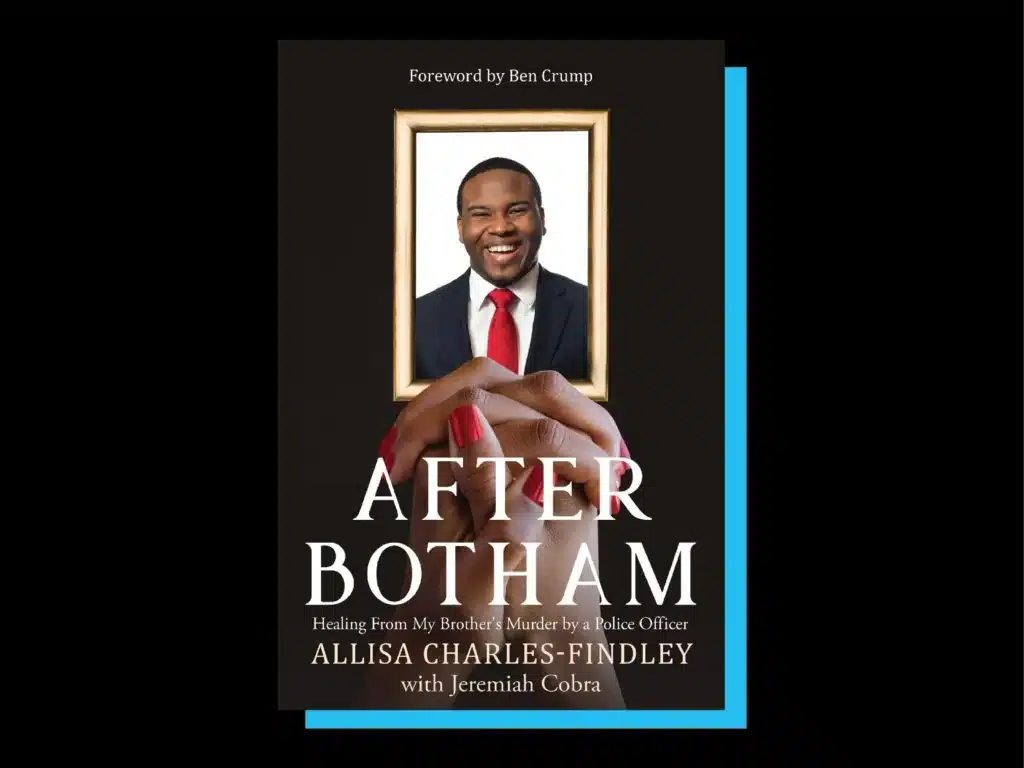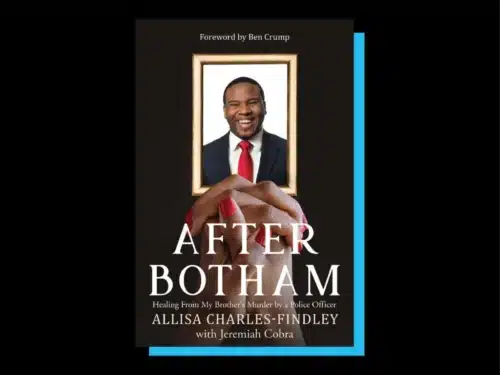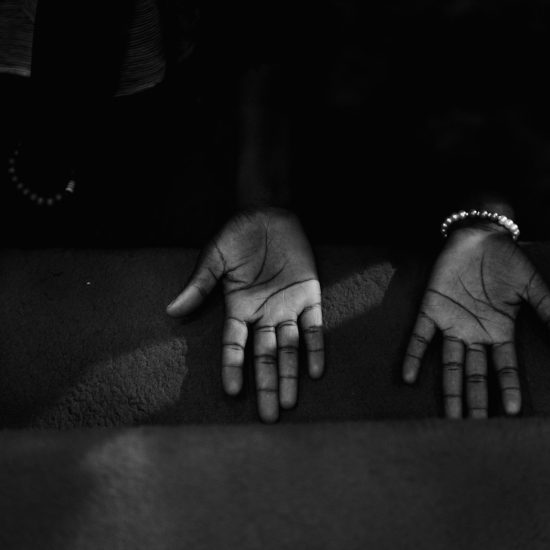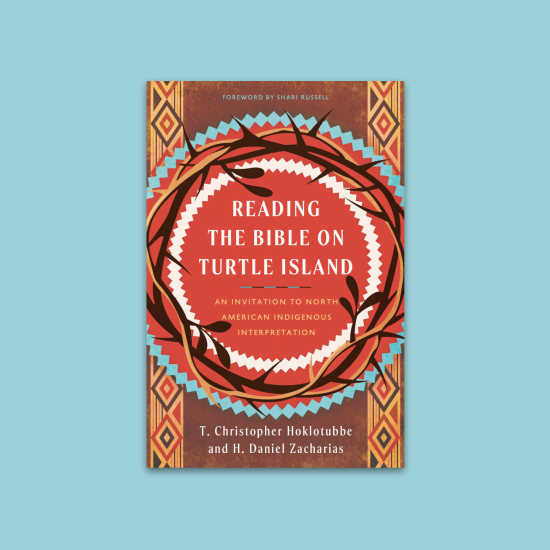

AFTER BOTHAM: Healing from My Brother’s Murder by a Police Officer. By Allisa Charles-Findley with Jeremiah Cobra. St. Louis, MO: Chalice Press, 2023. Vii + 195 pages.
It seems that stories about the killings of African American men and women, often by police or vigilantes, have appeared with greater frequency in recent years. Names like Trayvon Martin, George Floyd, Breanna Taylor, and Botham Jean, among many others, have become part of a litany we rehearse with increasing frequency. Some of us wonder whether this reality can be changed. Might reports of police violence and other violence against people of color become a thing of the past? Might there no longer be stories about the next George Floyd or Armaud Arbery? These stories don’t include those random shootings of people who knock on the door of a home and get shot for no other reason than they were Black and knocked on the door. Unfortunately, we’re not there yet because the stories continue to pile up.

Robert D. Cornwall
When pondering the deaths or injuries of the persons who are named in these stories, some of whom had run-ins with police that went awry, and some, like Botham Jean, simply got caught in a random shooting, it is helpful to know the larger story. It’s important to know something about the person and their families and friends. So, we need to hear these so that we can see the larger picture. Thus, we need to hear the stories such as the one told in After Botham.
After Botham is a very personal story. The person telling the story is Botham Jean’s sister, Allisa Charles-Findley. Charles-Findley tells the story of her struggle to deal with and heal from the death of her brother who was shot and killed when an off-duty policewoman entered her brother’s apartment in Dallas, thinking it was her own. When she saw Botham there in her apartment, sitting on the sofa, eating ice cream, she shot him dead thinking he was an intruder. While Amber Guyger would eventually be convicted of murder, it wasn’t until after her colleagues in the police department tried to cast blame on the victim to justify the killing.
In this book, the author, who is Botham Jean’s sister, introduces us to the victim of this murder and his family. We learn that Jean was educated at a Church of Christ university, was a song leader in a Church of Christ congregation, and was an accountant at a leading accounting firm. In other words, there is nothing about him that would raise suspicion. He was a good man who died too soon. Part of the problem here is racism. Another part of the problem, though it is not one dealt with in the book, is that our society seems to be rather trigger-happy. People seem to be shooting first and asking questions later. This leads to tragic consequences.
While Allisa Charles-Findley’s After Botham tells us something about the life of Botham Jean, the focus is really on the aftermath. It is the story of one person’s experience of dealing with a trauma that upended her life. For years she struggled to make sense of her brother’s death, suffering her own mental anguish, even as she sought to address the wrong committed against her brother. Every time she read or heard of another police-involved or non-police-involved shooting and killing of an African American man or woman, this added to her trauma, delaying her healing. Although she is a person of faith, that faith was challenged. Unfortunately, it appears that her church was not as supportive of her struggles as she would have liked.
If I have any criticism of After Botham is that I wanted to know more about Botham himself. I wanted to know more about his faith and his involvement in the church. He seems, from what is revealed here, to be a wonderful, generous, caring young man, whose voice blessed many. Nevertheless, this is in part a story of healing, which as one might expect takes time. While Allisa and Botham’s younger brother expressed his forgiveness for Amber Guyger during the sentencing portion of the trial, even asking to hug her, Allissa has not chosen to forgive her brother’s killer. She doesn’t criticize her younger brother, only that each person must decide for themselves. In her case, she found herself needing to move beyond doing everything for her brother to doing it for herself. With that in mind, she remains committed to maintaining the memory of her brother by fighting for justice for others.
Perhaps one of the most important elements of this story is that it reminds us that family and friends are affected by the deaths we read about. Sometimes we get caught up in the story and forget about those who are most affected by it. We must remember that the family and friends of the victim, in this case, Botham Jean, are human beings who loved and cherished the victim. Even as they grieve, they struggle to make sense of a death. Sometimes the victim will be someone like Botham Jean who at the moment of his death wasn’t doing anything other than sitting on a sofa, eating ice cream, and watching TV when someone bursts in and shoots him dead. In other cases, the death might be the result of police brutality during an arrest, such as was the case in the death of George Floyd. Whatever the case might be, we need to remember those left behind. We need to remember that they grieve and must go on with life without their loved ones.
As we read Allisa Charles-Findley’s account in After Botham of her brother’s life and death, as well as her own struggle to make sense of it, she invites us into the struggle. She makes the person of Botham Jean real. He is more than a cause or a name on a list. He is a real person. The same is true of the author and her family. In this memoir, she brings to life the back story of the person who was killed and the family that grieves his death. This is also a story of faith and the challenges to faith. As Charles-Findley writes in her concluding chapter, she is not quite sure “where I want to be with God. I still pray with a bit of cynicism. I still look at some church members and feel that I have been betrayed. I still cry inconsolably when the congregation sings ‘You Are My Strength.” And I have not forgiven Guyger for killing my brother. I do not know if I ever will. I am not sure if I can. … I know what I will do for me. I will fight” (p. 195). Telling this story, in After Botham, is part of that effort to fight for justice in the name of her brother Botham Jean. For the reader, After Botham provides an opportunity to listen to the cries of those who have experienced not only grief but wish to put forth a call to join the struggle for justice. But to do so, as we discover here, we must follow the lead of those who have been most affected and not presume to lead.
This review originally appeared on BobCornwall.com.
Robert D. Cornwall is an ordained minister in the Christian Church (Disciples of Christ). Now retired from his ministry at Central Woodward Christian Church (Disciples of Christ) of Troy, Michigan, he serves as Minister-at-Large in Troy. He holds a Ph.D. in Historical Theology from Fuller Theological Seminary and is the author of numerous books including his latest “Second Thoughts about the Second Coming: Understanding the End Times, Our Future, and Christian Hope” coauthored with Ronald J. Allen. His blog Ponderings on a Faith Journey can be found at www.bobcornwall.com.






